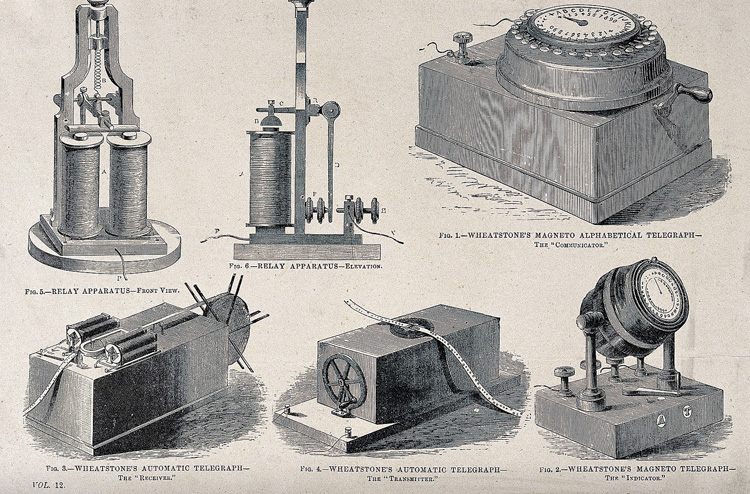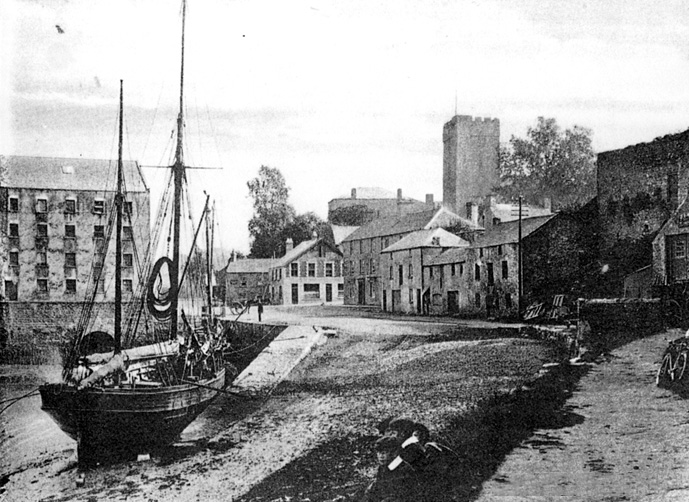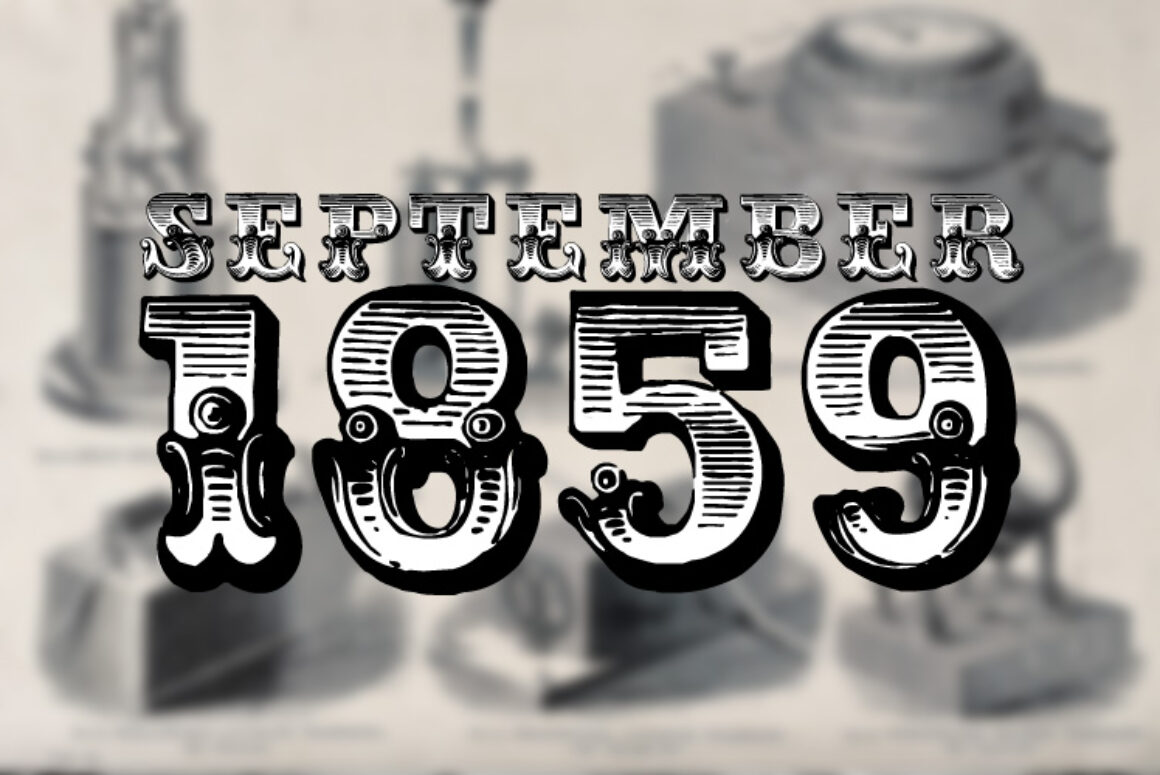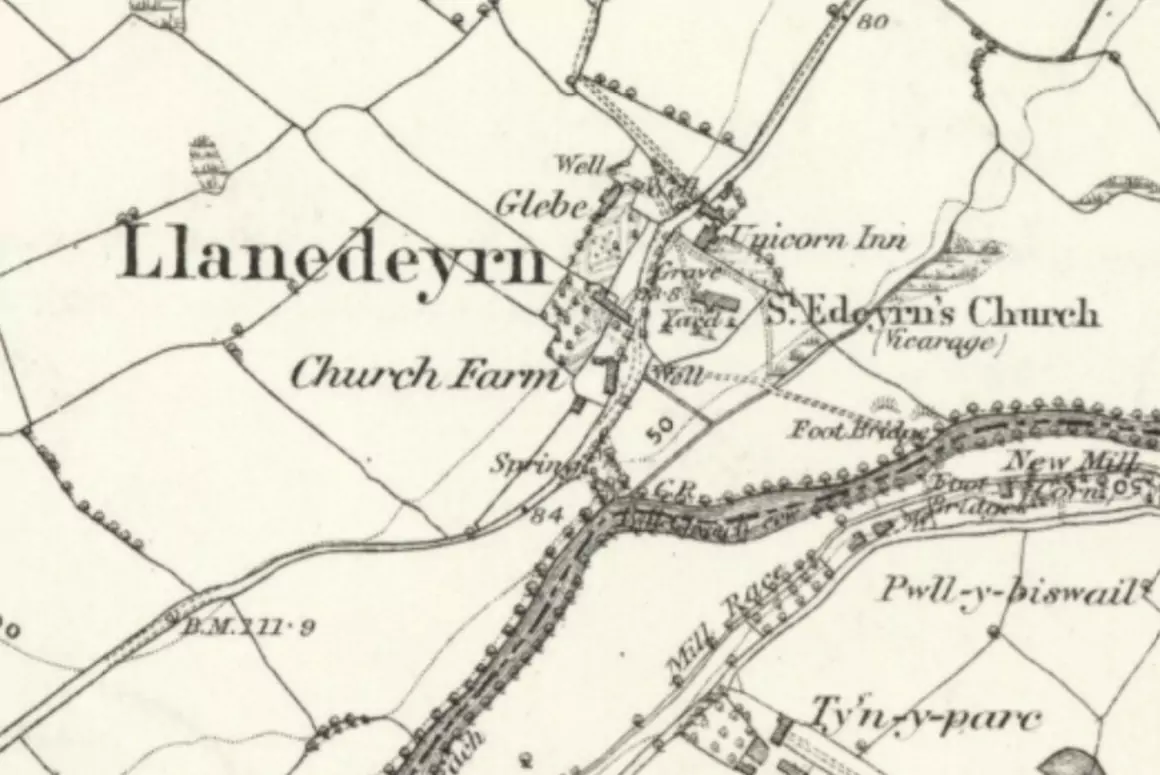![]()
It was a weekly English language newspaper that served West Wales, particularly Haverfordwest, Fishguard, Tenby and Milford Haven, published and edited by Joseph Potter. It proudly proclaims a guaranteed circulation of 2000 copies. If only my books would sell as well as that.
The newspaper mixed exciting local news, advertisements, railway timetables and some foreign news, received by ‘Electric Telegraph.’ This explains why West Wales was thrilling to the news from Constantinople that a conspiracy to assassinate the Sultan had been uncovered. Over two hundred people were arrested, including Djafer Dem, the Pasha of Albania. News that the ship ‘Louisa,’ from Cardigan saw a dis-masted vessel off Lundy Island which shortly afterwards disappeared, just couldn’t cut it in comparison. A discerning reader’s attention would inevitably be elsewhere, for news that the post of Charge d’Affairs and Consul-General in Bolivia had become vacant would no doubt inspire everyone to compose thoughtful letters of application.

Joseph Potter and his wife Jane appear to have been a committed couple of enterprise. They ran Potter’s bookselling, bookbinding and printing establishment on High Street in Haverfordwest and were naturally very keen to place their business as a leader in contemporary recycling in the town. They had a front page advertisement proudly announcing that they were selling cheap newspapers. Presumably they were yesterday’s news brought down from London. You could get old copies of papers like The News of the World and The Illustrated London News. Jane especially seemed to realise that whilst this was old news in London, it was nothing less than exciting, cutting-edge stuff down in Haverfordwest. It can be no surprise that when she died in 1871 at the age of 82, Jane was described as a woman of most industrious habits, who possessed considerable business abilities. And I am sure she never paid for her front page advertisements in Potter’s Electric News either.
Some of the news was perhaps inconsequential and suggests that previously enjoyed copies of Potter’s Electric News would not command a premium price in the more scattered outposts of the Empire. In Haverfordwest, for example, John Fitzgerald was prepared to sell bricks from his field near the Gas Works, at the low price of one pound seven shillings per thousand. Clearly a bargain. A man dropped his wallet in Pembroke Dock but found it later.

In Pembroke an apple tree blossomed for the second time that year and a soldier who had absconded with some money was detained in a country lane. In Manobier John Ellis was enjoying a days’ shooting, and climbed over a hedge, whilst holding his gun by the muzzle. As you might imagine, it accidentally went off, carrying away the thumb off his right hand, and the charge passed so near to the side of his head as to burn the whole of his whisker.
Solva, however, was living up to its reputation as a vibrant news hub. It seems that the local boys would chase down the road behind the coach from Haverfordwest to Saint David’s and try to hang on to it. However, Peter Rees, let go when the coach was going too fast for him and as he watched it disappear he was knocked over by a cart following behind. The wheel went right over his thighs, thankfully without doing him much injury. An important lesson to be learned there, as the villagers themselves were aware. They decided that it was time to put a stop to this, and were relieved to hear that their respected policeman, Sergeant Thomas, was determined to put an end to this dangerous game.
He was undoubtedly a true hero, about whom respectful songs were surely composed during those dark winter months. Potter’s Electric News interviewed a resident who was full of praise for his assiduous application of his duties.
To him alone are we indebted for being able to walk the streets without stepping into the filth of swine. He gave the swineherds notice to keep their pigs from the roads and streets, -and if they did not the consequence would be that he would impound them.

Certainly an unambiguous message, though it appears that similar threats, frequently issued by a previous policeman, had not been carried out. However, Sergeant Thomas was cut from a different cloth. He impounded half a dozen of the bilious swine on a Saturday morning. Firm but fair, I would say.
However, I can’t help but think that his insistence upon the enforcement of the precise letter of the law was not always well-received. His enthusiasm for keeping the streets quiet and peaceable by assiduously insisting that the local public house closed promptly at night, might not have been universally welcomed.
Pembroke, of course, survived on a knife-edge, always merely a moment away from anarchy. No change there then, you might think. Certainly the magistrates’ court was busy.
Betsy Reynolds and Eliza Phillips were charged with throwing stones and dirt at Isaac Stephens, and then assaulting him. This was all because Isaac had been the principal witness against Phillips, some few weeks previously, when she was charged with stealing potatoes. So when Isaac was driving a cart load of manure along the road, which unfortunately ran outside the prisoners’ home, they peppered him with handfuls of stones and mud, they were found guilty, of course, but were happy to pay a fine of one shilling and sixpence. They had made their point.

George Rees, who was apparently a well-known character, a phrase that always brings a chill to your soul, was charged by his stepmother with assaulting her. She turned up in court with a dramatic pair of black eyes, and gave evidence about the events of that morning, for justice was swift in Pembroke in those days. We would do well to heed the important lesson it offers us, even after all these years.
It was alleged that his father had called George to get out of bed, though perhaps the vocabulary was a little more colourful, and fetch his horses. George refused to do so and thus, in the manner of fathers throughout history, he went out to do the job himself. Whilst he was out, presumably chuntering away about ingratitude and injustice, George thumped his stepmother.
If I am honest, George’s defence did not go well. He began by asserting that he was the quietest lad in Pembroke. If there is another, point him out, he said staring around the courtroom defiantly. I can’t help thinking that this was a risky strategy. He went on to describe how badly treated he had been. His step-mother was always calling him names, he said. Perhaps he went on to remind her that he was the quietest lad in Pembroke. This might have been the reason why she threw a cat in his face and when that didn’t work, she flung lead pellets at him. Or so he claimed. Unsurprisingly, his carefully thought-out defence based upon his self-proclaimed and unassuming good nature, was not a triumph.
The Bench did not feel disposed to take his word for his quietness, and sentenced him to three months’ imprisonment with hard labour.





